Migrant crisis: EU and Turkey in Aegean stand-off
- Published
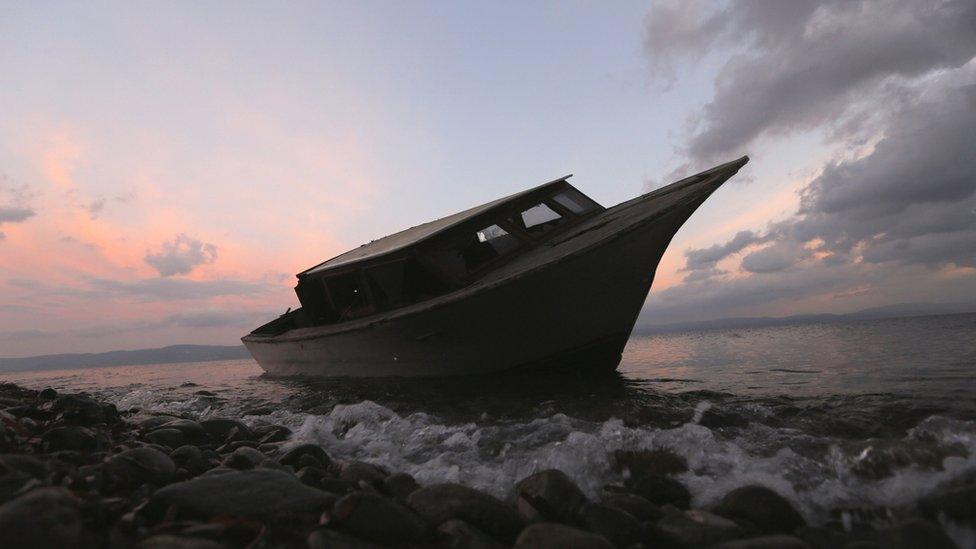
Arrival zone: Record numbers of migrants are crossing from Turkey to Greece
"The first time we tried to cross the sea, our engine failed," Iman said, "and the Turkish authorities took us back to Turkey.
"They kept us in detention for three days and took our fingerprints. Then they released us, so we tried again."
Iman and her family had just disembarked from a Greek coastguard vessel, en route (they hope) from Syria to Germany.
As winter turns into spring, the coastguard has begun picking up hundreds of refugees and migrants every day, as soon as their flimsy rubber boats enter Greek territorial waters.
It marks a change in policy. Previously the coastguard would intervene only if migrants were clearly in danger, or boats were about to sink.
It is one sign that the management of the migration crisis in the Greek islands is, gradually, becoming more organised.

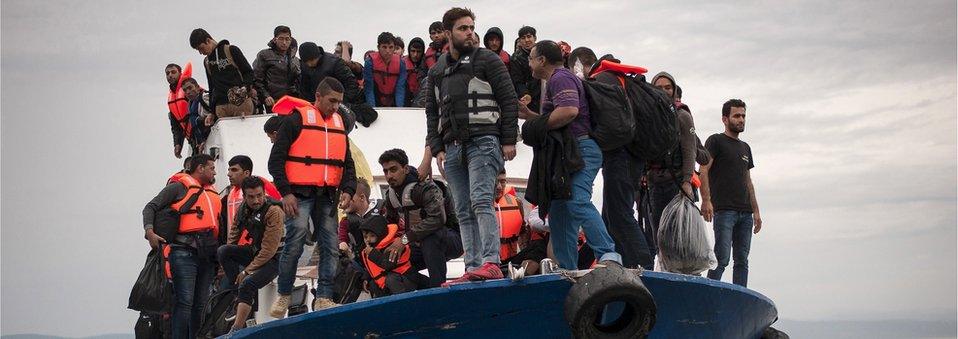

But as EU leaders prepare to hold a summit meeting with Turkey, there is no evidence on Lesbos that the number of arrivals is about to fall.
"We haven't seen any significant changes in the attitude of the Turkish coastguard - we haven't seen more boats patrolling the area from their side," said Lt Comm Antonis Sofiadellis.
"It's a big concern for us," he added, "and if nothing changes, I think the flows will increase again."
Tougher policy
That is one of the reasons why the political focus is beginning to shift, from a policy of prevention to a policy of swift return.
Asked on Friday if the plan was to send back all non-Syrians to Turkey in a systematic fashion, the EU's Migration Commissioner Dimitris Avramopolous said: "This is one of the main goals we have to achieve.
"The ones who come over to Europe and are in need of international protection will have it. The others will have to be returned," he said.
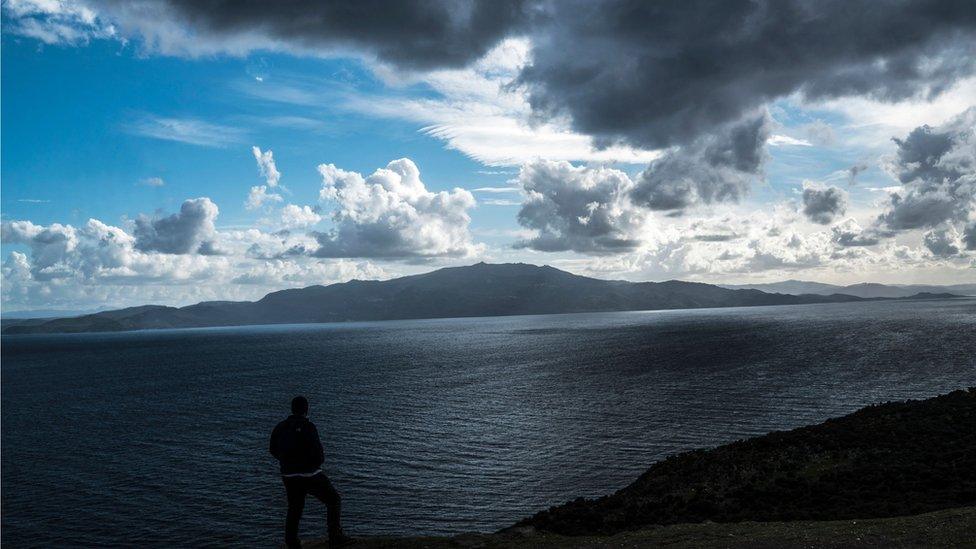
The view from Turkey - for migrants the island of Lesbos is the closest part of the EU
If that means Iraqis and Afghans are to be included, roughly half the arrivals so far this year would no longer be eligible to stay in Greece at all.
That would represent a much tougher European policy, as governments across the continent struggle to come to terms with the scale of the migration crisis.
Will Turkey co-operate?
But agreeing such an ambitious repatriation policy may be a lot easier than implementing it.
At every step, Turkey's full co-operation will be essential.
The Turkish authorities say they have already prevented some 24,000 migrants from leaving the country illegally in the first six weeks of this year.
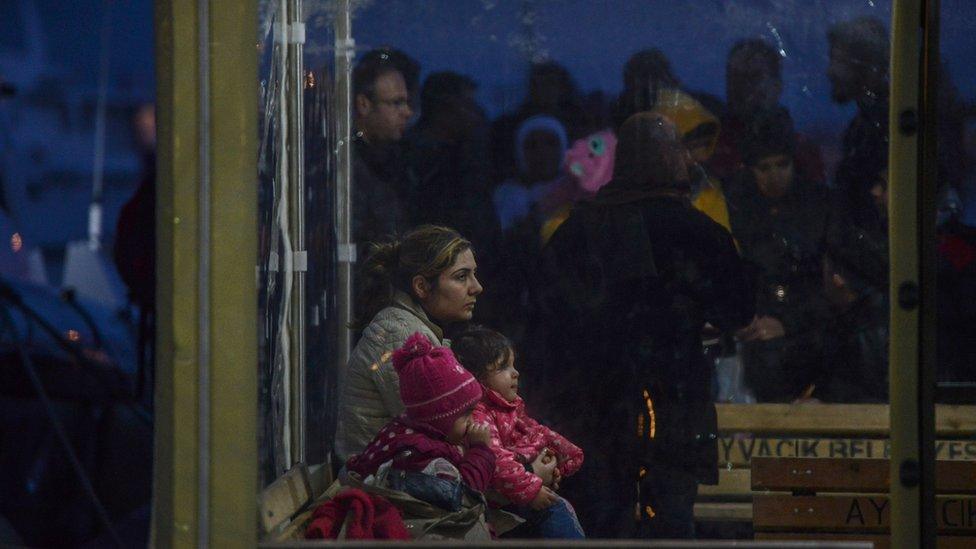
Departure postponed - Syrians trying to reach Lesbos are detained by the Turkish authorities

But even if they are taken into custody, as Iman and her family were, most will simply try to cross the Aegean again as soon as they are released.
So in order to ease the mounting strains on the system, a large-scale readmissions policy needs to be part of a much broader package.
In particular, EU leaders are being urged to speed up the relocation to other parts of the Union of refugees who have already arrived in Greece.
Such a policy is already in place on paper. But it has barely got off the ground.
Countries like Hungary and Slovakia are in open revolt against a mandatory measure that was agreed last year under EU voting rules.
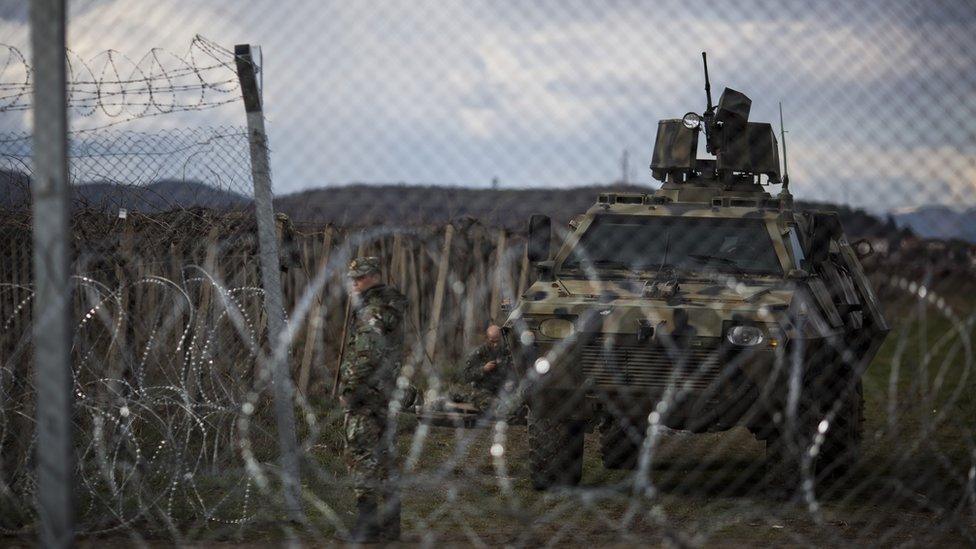
Keep out - Macedonia has all but closed its border to migrants
It is not the only issue that could make this summit a fractious affair.
The bottleneck in Greece, caused by border restrictions further north in the Balkans, has already provoked some sharp public exchanges. Thousands of refugees and migrants are stranded.
Time for hard bargains
EU leaders will also have to wrestle with one chicken-and-egg conundrum in particular.
If the number of arrivals on the Greek islands were to fall significantly, Germany and others may be prepared over time to resettle hundreds of thousands of Syrian refugees directly from camps in Turkey.
But the Turkish authorities appear to want to see evidence that the resettlement programme really will happen, before they commit extra resources to take on the smugglers in remote areas of the Aegean coast.
It is a time for hard bargains. But that time is running short.